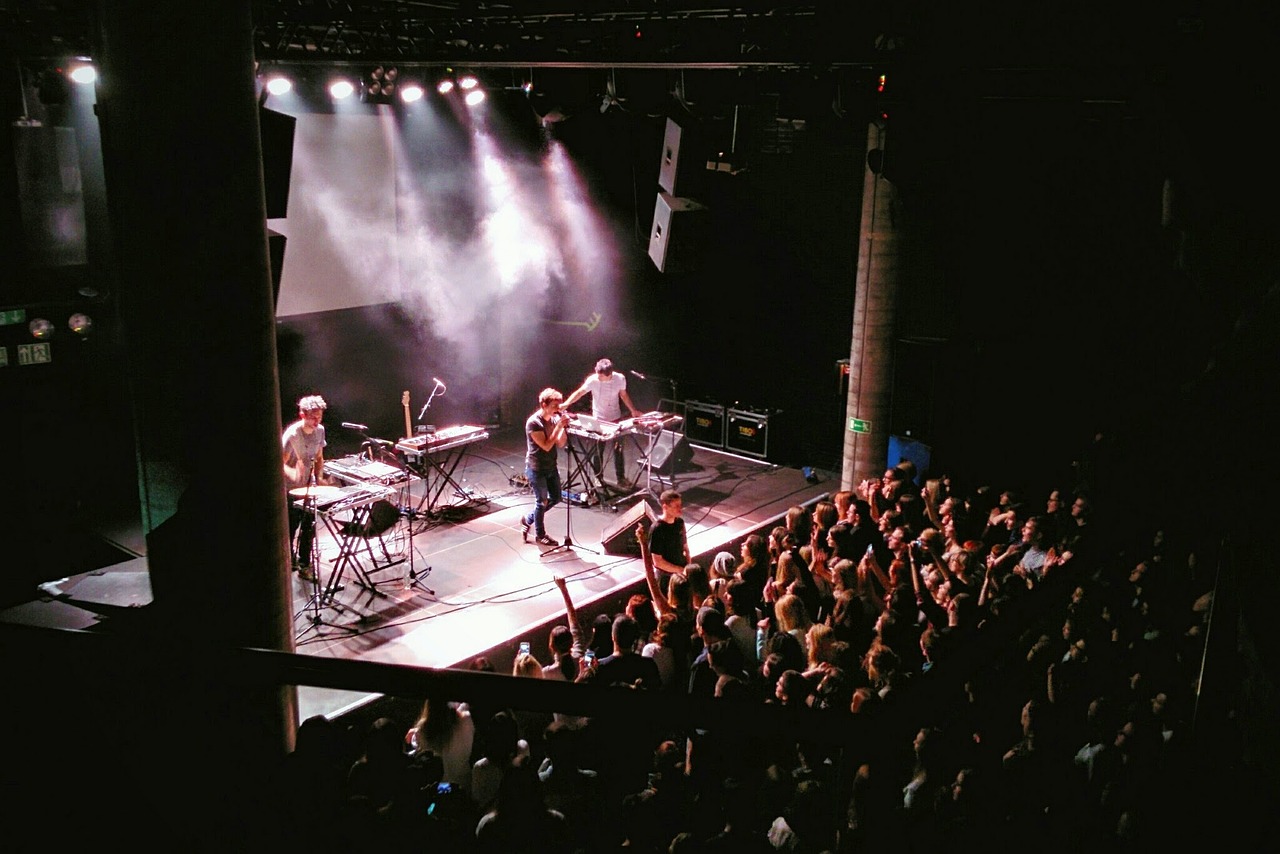Are University and College Venues Still Relevant for Touring Musicians.

For touring artists and musicians in the 70s and 80s the university and college circuit used to feature heavily in touring schedules. With greater access to venues and an increase in the number of music festivals are these types of venues still relevant today for artists putting their touring schedules together.
Take a look at any musician’s touring poster from several decades ago and the dates will have a high percentage of university, college and polytechnic venues listed. This was particularly true for the UK, Europe, Australia and the United States where venue availability was limited. Student unions have always been driven to provide entertainment for their members and with readily available venue spaces it was logical to secure performance artists, musicians and bands.
Why Touring Artists Choose a Campus Venue.
Traditional live music venues have always been expensive, and owners were often selective about who could play in a venue. Student unions had access to suitable spaces and could attract artists for lower fees. These venues were a great match for up-and-coming artists and those playing alternative genres not accepted by mainstream venue owners. It has always been a partnership that benefited the artist and the student unions.
Advantages.
One of the biggest advantages of the campus venue is easy access to a sizable student audience without having to generate ticket sales from an external population. The venue spaces on campus sites are usually well equipped for year-round student activities and often have good quality pre-installed sound and lighting set ups. The financial considerations can be a factor and most student unions will operate a revenue sharing model including ticket and alcohol sales with artists keeping all merchandise sales revenue. The student union generates some revenue without paying an artist's fee and the artist does not have to pay for venue use. Students make up a large proportion of live gig and music festival-goers long after they graduate so exposure at a student facility can help build a fan base for the future.
Disadvantages.
Some university and college venues can be limited in size and may be a factor when an artist is considering ticket sales revenue limited by capacity. Venues on a campus site may be subject to restrictions that could include curfews and limitations on alcohol sales so is a factor when considering such a venue. Depending on the music genre the university may impose strict rules and penalties for any damage caused during a live gig. The availability dates may not work with an artist's tour if they fall when students are not there during holidays, or the venue has other student focused commitments.
Still Relevant?
University and collage venues are still relevant for up-and-coming artists and those with a smaller fan base. This will fit in with the venue's limited capacity and other restrictions. An established big-name artist will be unlikely to consider such a venue on a tour due to production and equipment restrictions plus the limited audience size and reduced revenue opportunities. The university and college venues remain an integral part of the touring circuit for artists and musicians particularly for those at an early stage in their career.
For touring managers planning their events using a software management platform like Festival Pro gives them all the functionality they need manage every aspect of their event logistics. The guys who are responsible for this software have been in the front line of event management for many years and the features are built from that experience and are performance artists themselves. The Festival Pro platform is easy to use and has comprehensive features with specific modules for managing artists, contractors, venues/stages, vendors, volunteers, sponsors, guestlists, ticketing, cashless payments and contactless ordering.
Image by tookapic via Pixaby
<< Back to articles
Contact us
Get in touch to discuss your requirements.
US: +1 424 485 0220 (USA)
UK: +44 207 060 2666 (United Kingdom)
AU: +61 (2) 8357 0793 (Australia)
NZ: +64 (0)9887 8005 (New Zealand)